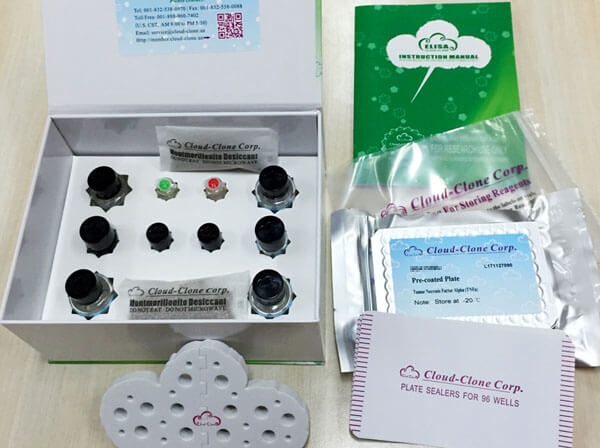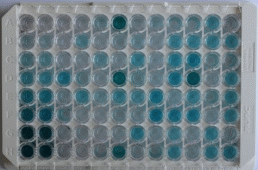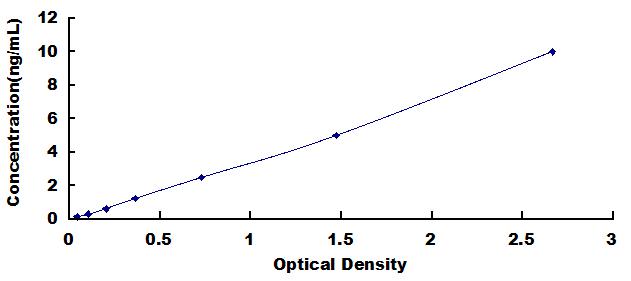ELISA Kit for Neutrophil Elastase (NE) 

ELANE; HLE; HNE; ELA2; PMN-E; Neutrophil Elastase; Medullasin; Polymorphonuclear Leukocyte Elastase; Bone Marrow Serine Protease; Leukocyte Elastase; PMN Elastase
- UOM
- FOB US$ 504.00 US$ 720.00 US$ 3,240.00 US$ 6,120.00 US$ 50,400.00
- Quantity
Overview
Properties
- Product No.SEA181Ca
- Organism SpeciesCanis familiaris; Canine (Dog) Same name, Different species.
- ApplicationsEnzyme-linked immunosorbent assay for Antigen Detection.
Research use only - DownloadInstruction Manual
- CategoryEnzyme & KinaseInfection immunity
Sign into your account
Share a new citation as an author
Upload your experimental result
Review

Contact us
Please fill in the blank.
Recovery
Matrices listed below were spiked with certain level of recombinant Neutrophil Elastase (NE) and the recovery rates were calculated by comparing the measured value to the expected amount of Neutrophil Elastase (NE) in samples.
| Matrix | Recovery range (%) | Average(%) |
| serum(n=5) | 88-95 | 91 |
| EDTA plasma(n=5) | 88-98 | 92 |
| heparin plasma(n=5) | 78-105 | 82 |
Precision
Intra-assay Precision (Precision within an assay): 3 samples with low, middle and high level Neutrophil Elastase (NE) were tested 20 times on one plate, respectively.
Inter-assay Precision (Precision between assays): 3 samples with low, middle and high level Neutrophil Elastase (NE) were tested on 3 different plates, 8 replicates in each plate.
CV(%) = SD/meanX100
Intra-Assay: CV<10%
Inter-Assay: CV<12%
Linearity
The linearity of the kit was assayed by testing samples spiked with appropriate concentration of Neutrophil Elastase (NE) and their serial dilutions. The results were demonstrated by the percentage of calculated concentration to the expected.
| Sample | 1:2 | 1:4 | 1:8 | 1:16 |
| serum(n=5) | 98-105% | 79-97% | 80-102% | 79-90% |
| EDTA plasma(n=5) | 98-105% | 89-102% | 96-105% | 78-94% |
| heparin plasma(n=5) | 80-90% | 95-103% | 80-89% | 92-99% |
Stability
The stability of kit is determined by the loss rate of activity. The loss rate of this kit is less than 5% within the expiration date under appropriate storage condition.
To minimize extra influence on the performance, operation procedures and lab conditions, especially room temperature, air humidity, incubator temperature should be strictly controlled. It is also strongly suggested that the whole assay is performed by the same operator from the beginning to the end.
Reagents and materials provided
| Reagents | Quantity | Reagents | Quantity |
| Pre-coated, ready to use 96-well strip plate | 1 | Plate sealer for 96 wells | 4 |
| Standard | 2 | Standard Diluent | 1×20mL |
| Detection Reagent A | 1×120µL | Assay Diluent A | 1×12mL |
| Detection Reagent B | 1×120µL | Assay Diluent B | 1×12mL |
| TMB Substrate | 1×9mL | Stop Solution | 1×6mL |
| Wash Buffer (30 × concentrate) | 1×20mL | Instruction manual | 1 |
Assay procedure summary
1. Prepare all reagents, samples and standards;
2. Add 100µL standard or sample to each well. Incubate 1 hours at 37°C;
3. Aspirate and add 100µL prepared Detection Reagent A. Incubate 1 hour at 37°C;
4. Aspirate and wash 3 times;
5. Add 100µL prepared Detection Reagent B. Incubate 30 minutes at 37°C;
6. Aspirate and wash 5 times;
7. Add 90µL Substrate Solution. Incubate 10-20 minutes at 37°C;
8. Add 50µL Stop Solution. Read at 450nm immediately.

Test principle
The test principle applied in this kit is Sandwich enzyme immunoassay. The microtiter plate provided in this kit has been pre-coated with an antibody specific to Neutrophil Elastase (NE). Standards or samples are then added to the appropriate microtiter plate wells with a biotin-conjugated antibody specific to Neutrophil Elastase (NE). Next, Avidin conjugated to Horseradish Peroxidase (HRP) is added to each microplate well and incubated. After TMB substrate solution is added, only those wells that contain Neutrophil Elastase (NE), biotin-conjugated antibody and enzyme-conjugated Avidin will exhibit a change in color. The enzyme-substrate reaction is terminated by the addition of sulphuric acid solution and the color change is measured spectrophotometrically at a wavelength of 450nm ± 10nm. The concentration of Neutrophil Elastase (NE) in the samples is then determined by comparing the O.D. of the samples to the standard curve.
Giveaways
Increment services
-
 Single-component Reagents of Assay Kit
Single-component Reagents of Assay Kit
-
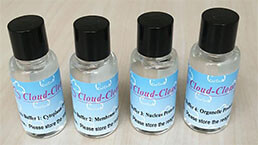 Lysis Buffer Specific for ELISA / CLIA
Lysis Buffer Specific for ELISA / CLIA
-
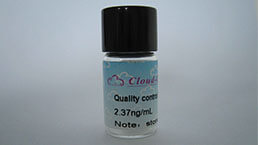 Quality Control of Kit
Quality Control of Kit
-
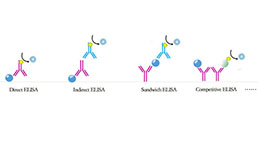 ELISA Kit Customized Service
ELISA Kit Customized Service
-
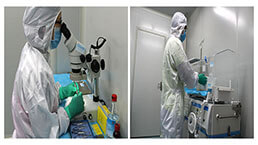 Disease Model Customized Service
Disease Model Customized Service
-
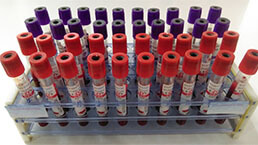 Serums Customized Service
Serums Customized Service
-
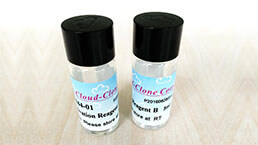 TGFB1 Activation Reagent
TGFB1 Activation Reagent
-
 Real Time PCR Experimental Service
Real Time PCR Experimental Service
-
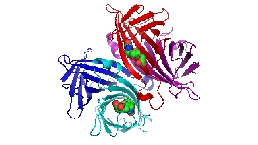 Streptavidin
Streptavidin
-
 Fast blue Protein Stain solution
Fast blue Protein Stain solution
-
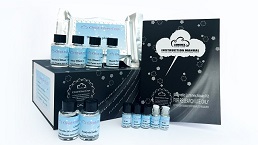 Single-component Reagents of FLIA Kit
Single-component Reagents of FLIA Kit
-
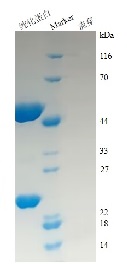 Streptavidin-Agarose Beads
Streptavidin-Agarose Beads
Citations
- Long-Term Leukocyte Filtration Should Be Avoided during Extracorporeal CirculationHindawi: 612848
- A dietary supplement improves facial photoaging and skin sebum, hydration and tonicity modulating serum fibronectin, neutrophil elastase 2, hyaluronic acid and carbonylated proteinsPubmed:25732262
- The neutrophil elastase inhibitor, sivelestat, attenuates sepsis-related kidney injury in ratspubmed:27430552
- Xuebijing injection treatment inhibits vasopermeability and reduces fluid requirements in acanine burn model.pubmed:28070608
- Inhibition of ALDH2 protects PC12 cells against formaldehyde-induced cytotoxicity: involving the protection of hydrogen sulphide.pubmed:28251688
- Targeted regulation of sympathetic activity in paraventricular nucleus reduces inducible ventricular arrhythmias in rats after myocardial infarction10.1016:j.jjcc.2018.06.003
- Angiotensin II Type 1a Receptors in the Subfornical Organ Modulate Neuroinflammation in the Hypothalamic Paraventricular Nucleus in Heart Failure RatsPubmed:29684507
- Repetitive transcranial magnetic stimulation inhibits Sirt1/MAO-A signaling in the prefrontal cortex in a rat model of depression and cortex-derived astrocytesPubmed:28948423
- The depressive-like behaviors of chronic unpredictable mild stress-treated mice, ameliorated by Tibetan medicine Zuotai: involvement in the hypothalamic …Pubmed:29379286
- Possible mechanisms of prenatal cold stress induced-anxiety-like behavior depression in offspring ratsPubmed: 30423388
- Role of melatonin in sleep deprivation‐induced intestinal barrier dysfunction in micePubmed: 30929267
- Effect of antimicrobial peptides HNP‐1 and hBD‐1 on Staphylococcus aureus strains in vitro and in vivoPubmed: 31313350
- Erythromycin suppresses neutrophil extracellular traps in smoking-related chronic pulmonary inflammationPubmed: 31515489
- Co-Administration of Curcumin and Artepillin C Induces Development of Brown-Like Adipocytes in Association with Local Norepinephrine Production by Alternatively …Pubmed: 31474682
- MiR-608 Exerts Anti-inflammatory Effects by Targeting ELANE in MonocytesPubmed: 31749032
- Neutrophil Extracellular Traps Associate with Clinical Stages in Breast CancerPubmed: 31656990
- Inhibition of microRNA-146a attenuated heart failure in myocardial infarction ratsPubmed: 31763669
- Neutrophil Elastase Inhibitors Suppress Oxidative Stress in Lung during Liver TransplantationPubmed: 31871555
- Levels of pro-and anti-inflammatory cytokines in cystic fibrosis patients with or without gingivitisPubmed: 31927460
- Neurotransmitter system aberrations in patients with drug addictionPubmed: 32804296
- Corneal epithelial injury-induced norepinephrine promotes Pseudomonas aeruginosa keratitisPubmed: 32376471
- Hyperinsulinemia rather than insulin resistance itself induces blood pressure elevation in high fat diet-fed ratsPubmed: 32349626
- Macrophage Extracellular Traps Aggravate Iron Overload©\Related Liver Ischemia/Reperfusion Injury33959955
- Zisheng Shenqi Decoction Ameliorates Monosodium Urate-Mediated Gouty Arthritis in Rats via Promotion of Autophagy through the AMPK/mTOR Signaling?¡33505502
- Depression of Non-Neuronal Cholinergic System May Play a Role in Co-Occurrence of Subjective Daytime Sleepiness and Hypertension in Patients with …34934375
- Transcutaneous Electrical Acustimulation Improved the Quality of Life in Patients With Diarrhea-Irritable Bowel SyndromePubmed:35088760
- A Novel Role of Tinospora Cordifolia in Amelioration of Cancer-Induced Systemic Deterioration By Taming Neutrophil Infiltration and Hyperactivation




